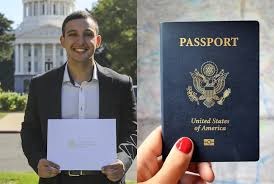How to Apply for Italy Student Visa from Nigeria 2025/2026
Table of Contents
-
Introduction: Why Study in Italy
-
Overview of the Italy Student Visa
-
Eligibility Criteria for Nigerian Applicants
-
Preparing Your Admission Documents
-
Types of Italian Student Visas
-
Documents Required for the Visa Application
-
Step-by-Step Application Process
-
Visa Interview Preparation
-
Processing Time and Fees
-
After Visa Approval – Arrival in Italy
-
Rights and Obligations of Student Visa Holders
-
Common Challenges and How to Overcome Them
-
Frequently Asked Questions
-
Conclusion
Introduction
Italy is home to some of the oldest and most respected universities in Europe – such as the University of Bologna, Sapienza University of Rome, and Politecnico di Milano. Tuition fees are relatively affordable, and many institutions offer English-taught programmes. For Nigerian students, Italy combines high-quality education, rich culture, and opportunities for part-time work.
Overview of the Italy Student Visa
Nigerians need a long-stay (Type D) student visa to study in Italy for more than 90 days. This visa allows you to live in Italy while enrolled at an accredited institution and to apply for a residence permit after arrival.
Key points:
-
Visa must be obtained before travelling.
-
You must already have an admission offer from an Italian institution.
-
You must prove you have sufficient funds, accommodation, and health insurance.
Eligibility Criteria for Nigerian Applicants
-
Valid Nigerian international passport (at least six months beyond the study period).
-
Unconditional letter of admission from an Italian university or higher education institute.
-
Proof of tuition fee payment or scholarship.
-
Proof of financial means to support living costs in Italy.
-
Medical insurance covering the entire study period.
Preparing Your Admission Documents
Before applying for the visa, you must secure admission. Most Italian universities require:
-
Completed application form and transcripts.
-
WAEC/NECO or higher certificates.
-
English or Italian proficiency (depending on programme).
-
Valid international passport.
-
Application fees (varies by university).
Many universities have online portals where you can upload documents and track your application.
Types of Italian Student Visas
-
Short-Stay (Type C): for study programmes of up to 90 days (summer schools, language courses).
-
Long-Stay (Type D): for programmes longer than 90 days (bachelor’s, master’s, PhD).
Most Nigerian students apply for the Type D visa.
How to Apply for Italy Student Visa from Nigeria 2025/2026
Documents Required for the Visa Application
-
Completed visa application form (download from the Italian embassy website).
-
Passport (original + copies).
-
Recent passport-size photos.
-
Admission letter from an Italian institution.
-
Proof of tuition payment or scholarship.
-
Proof of sufficient funds (bank statements, sponsor’s letter, or scholarship letter).
-
Proof of accommodation in Italy (rental agreement, hostel booking, or university housing letter).
-
Health insurance valid in Italy for at least one year.
-
Flight reservation (do not buy ticket until visa is issued).
-
Proof of previous academic qualifications.
-
Birth certificate (sometimes required).
-
Police character certificate or criminal record certificate (if requested).
All documents not in Italian or English should be translated and legalized.
Step-by-Step Application Process
Step 1: Secure Admission
Get a formal acceptance/admission letter from your chosen Italian institution.
Step 2: Prepare Documents
Gather all required documents listed above.
Step 3: Book an Appointment
Visit the website of the Italian Embassy in Abuja or the Consulate in Lagos to book a visa appointment. Appointments fill up fast, especially before September/October intakes.
Step 4: Attend the Visa Interview
Appear at the embassy or consulate with your documents. Submit biometrics and pay the visa fee.
Step 5: Wait for Processing
If approved, the visa sticker will be affixed to your passport.
Step 6: Travel to Italy and Apply for Residence Permit
Within eight days of arrival, you must apply for a Permesso di Soggiorno (residence permit) at the local post office or police headquarters.
Visa Interview Preparation
-
Be punctual and neatly dressed.
-
Be ready to explain your study plans, funding source, and accommodation arrangements.
-
Carry original documents plus copies.
-
Practice answering simple questions about your chosen course and university.
Processing Time and Fees
-
Visa fee: about €50–€60 (payable in naira at the exchange rate set by the embassy).
-
Processing time: 2–6 weeks depending on the volume of applications.
Apply as early as possible (three months before classes start).
After Visa Approval – Arrival in Italy
-
Apply for your residence permit within eight days.
-
Register at your university and obtain your student ID.
-
Open a bank account and register with local health services.
-
Learn basic Italian to ease integration.
Rights and Obligations of Student Visa Holders
-
You may work part-time (up to 20 hours per week) during term.
-
You must maintain enrollment and satisfactory academic progress.
-
You must renew your residence permit before it expires.
How to Apply for Italy Student Visa from Nigeria 2025/2026
Common Challenges and How to Overcome Them
-
Appointment availability: Book early and monitor embassy website.
-
Financial proof: Prepare clear bank statements or sponsorship letters.
-
Document translation/legalization: Use accredited translators and legalize documents at the Ministry of Foreign Affairs before submission.
Sample Timeline from Admission to Arrival
-
November–January: Research universities and submit applications.
-
February–April: Receive offers and accept one.
-
April–May: Gather documents and book visa appointment.
-
June–July: Attend visa interview.
-
August: Collect visa and book flight.
-
September: Travel to Italy and apply for residence permit.
Pre-Departure Checklist (Printable)
-
Valid Nigerian passport.
-
Admission letter.
-
Proof of tuition payment.
-
Proof of accommodation.
-
Health insurance.
-
Proof of funds.
-
Visa appointment booked.
-
Original and photocopies of documents.
-
Learn basic Italian phrases.
Testimonies from Nigerian Students in Italy
Adaobi, Master’s Student in Milan:
“I applied for the DSU scholarship and my living expenses are covered. The visa process was smooth once I had all my documents in order.”
Chinedu, Bachelor’s Student in Bologna:
“Learning basic Italian helped me settle faster. The embassy staff were friendly as long as documents were complete.”
Including short testimonies like these adds credibility and practical insight.
Tips for Life and Studies in Italy
-
Register at your local town hall for student discounts.
-
Open an Italian bank account for easier transactions.
-
Join Nigerian student associations for support.
-
Respect visa conditions; renew your residence permit on time.
-
Balance studies and part-time work.
Common Challenges and How to Overcome Them
-
Delayed appointments: Check embassy website regularly and be flexible.
-
Financial proof issues: Use a sponsor with verifiable income and bank statements.
-
Language barrier: Take a short online Italian course before leaving Nigeria.
How to Apply for Italy Student Visa from Nigeria 2025/2026
Frequently Asked Questions
Q: Can I travel without a visa?
A: No. Nigerian passport holders need a visa before departure.
Q: How much should I show in my bank account?
A: At least €500–€600 per month of study.
Q: Can I bring my spouse or children?
A: After obtaining your residence permit, you may apply for family reunification.
Q: Do I need IELTS?
A: Only if your programme requires proof of English. Some accept WAEC English.
Conclusion
Applying for an Italy student visa from Nigeria in 2025 may seem complicated, but with early preparation it becomes straightforward. Secure admission, gather your documents, book your visa appointment early, and prepare for the interview. Italy offers Nigerian students world-class education, scholarships, part-time job opportunities, and a vibrant cultural experience.
Use the checklist above as your roadmap. With the right preparation, you can start your academic journey in Italy smoothly and legally.





